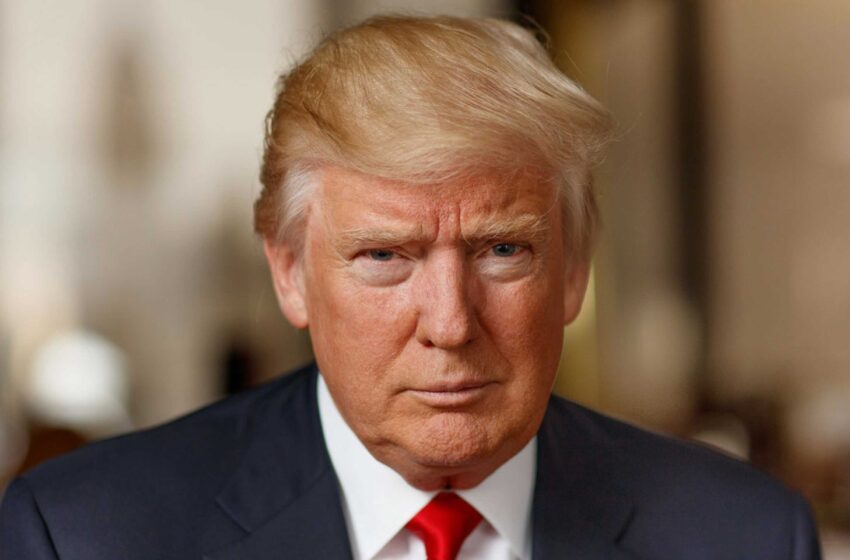What is the Insurrection Act and why Trump is considering it now

Donald Trump. Picture: David Hume Kennerly/Getty Images
President Donald Trump has reignited debate over the Insurrection Act, a rarely used 1807 law that grants the president sweeping powers to deploy military forces on U.S. soil. On Monday, Trump said he might invoke the act if courts or state officials block his efforts to send National Guard troops to cities like Portland and Chicago. The move could bypass legal challenges but raises questions about civil liberties, states’ rights, and the limits of presidential power.
What Is the Insurrection Act?
The Insurrection Act of 1807 is a federal law that authorizes the president to deploy active-duty military or federalize National Guard units to suppress insurrection, rebellion, or widespread unrest. Unlike the Posse Comitatus Act, which restricts the use of the military for domestic policing, the Insurrection Act creates an exception in extreme cases.
Under the law, the president must first issue a proclamation ordering insurgents to disperse. If violence or resistance continues, the president may then issue an executive order deploying troops. This authority does not require prior congressional approval, giving the executive branch significant discretion.
Historical Use of the Insurrection Act
The act has been invoked only a handful of times in U.S. history. Presidents used it to enforce desegregation in the South during the Civil Rights Movement, to quell riots in Detroit in 1967, and most recently during the 1992 Los Angeles riots following the Rodney King verdict. It has not been used in more than 30 years.
Why Trump is Considering It Now
Trump’s comments come after federal judges blocked his attempts to send National Guard troops from Texas and California into Portland. He argues that ongoing unrest in Portland and Chicago amounts to “domestic terrorism” and that state officials are obstructing his duty to maintain order. Trump told reporters that he would act “if people were being killed and courts or governors were holding us up”.
Pushback From Governors and Officials
State leaders have pushed back strongly. Illinois Gov. JB Pritzker called federal troop mobilization “an unconstitutional invasion,” warning that Trump was using chaos as a pretext to consolidate power. California Gov. Gavin Newsom even threatened to withdraw from the National Governors Association if other states did not condemn the move.
Critics argue that Trump’s proposed use of the Insurrection Act goes far beyond its intended purpose. Traditionally, it has been invoked in response to genuine breakdowns of order, not to bypass judicial rulings. Legal scholars warn that applying it to routine law enforcement could erode checks and balances and expand presidential authority in ways that challenge the Constitution.
READ ALSO
Trump wants Fannie Mae to push homebuilders: Here’s what it means for housing costs
Could Trump Actually Invoke It?
While Trump has not yet taken formal steps, his remarks indicate that he sees the law as a legal “workaround” against unfavorable court rulings. His administration has already described judicial opposition as a “legal insurrection,” laying rhetorical groundwork for its use. Still, invoking the act would likely trigger a new wave of lawsuits and political battles.
Implications for Civil Liberties
If used, the Insurrection Act could set a major precedent by allowing federal troops to operate in states without local approval. Civil rights advocates warn that this could escalate tensions in cities already facing unrest and blur the line between civilian law enforcement and military power.
The Insurrection Act debate underscores the fragile balance between federal authority and states’ rights. While presidents possess emergency powers, history shows they are rarely used, and for good reason. Whether Trump follows through or not, the renewed focus on the act highlights deep divisions over law, order, and democracy in America.
FAQ
Q: What is the Insurrection Act?
The Insurrection Act is a U.S. law passed in 1807 that allows the president to deploy federal troops domestically to suppress rebellion, insurrection, or widespread unrest.
Q: When was the Insurrection Act last used?
It was last invoked in 1992, when President George H.W. Bush deployed federal troops to Los Angeles during riots following the Rodney King verdict.
Q: Can the president use the military on U.S. soil without Congress?
Yes. The Insurrection Act gives the president the authority to deploy troops without prior approval from Congress, though the action can be challenged in court.
Q: Why is Trump considering the Insurrection Act now?
Trump said he may invoke the act to bypass court rulings that blocked his efforts to send National Guard troops to cities like Portland and Chicago, which he claims are plagued by violence.
Q: Does the Insurrection Act override state governors?
Yes. While governors usually control their state’s National Guard, the president can federalize them or send in active-duty troops under the Insurrection Act, even without state consent.
Q: How is the Insurrection Act different from the Posse Comitatus Act?
The Posse Comitatus Act generally bars the use of the military in civilian law enforcement. The Insurrection Act creates an exception, allowing military involvement during severe unrest.
Q: What are the risks of invoking the Insurrection Act?
Critics warn that using it for political disputes could undermine civil liberties, inflame unrest, and expand presidential power beyond constitutional limits.

